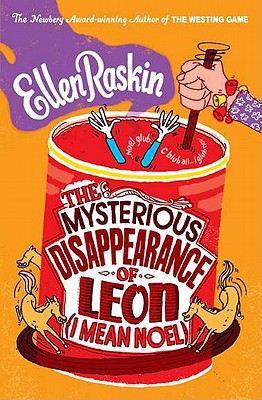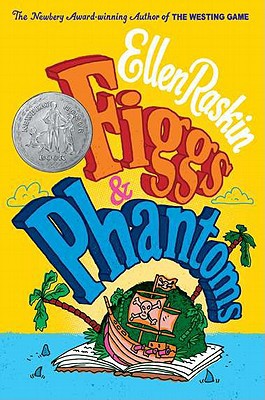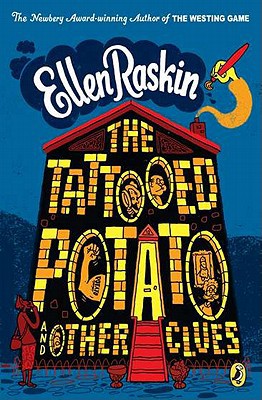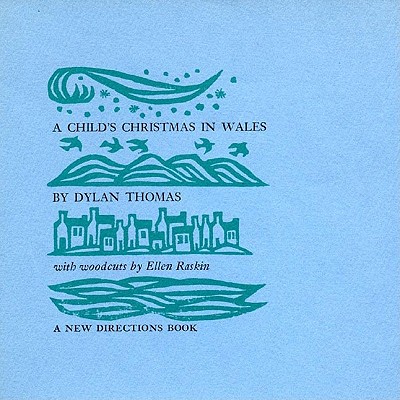
 This time of year, when we’re taking sales meeting after sales meeting with reps, I find myself looking through catalogs to see if any of my old favorites have come back into print. And the fantastic thing is, they often do.
This time of year, when we’re taking sales meeting after sales meeting with reps, I find myself looking through catalogs to see if any of my old favorites have come back into print. And the fantastic thing is, they often do.
Editors are passionate book lovers, and as they grow in stature at their various houses, they are often able to advocate successfully for OP titles and bring them to market. Until recently, reissued titles have had a hard time getting the kind of marketing push their newer counterparts enjoy, and therefore often languish unnoticed on bookstore shelves until, a year or so later, they go back OP again.
 With the advent of social networking, I think publishers now have the best opportunity they’ve ever had to get the word out to target audiences eager for these reissues. These days, it’s possible to alert (for free, no less!) not only the “gatekeepers”—booksellers, librarians, and teachers—who remember and love those books, but diehard fans of the author whose Goodreads and LibraryThing shelves include those books and who spend time in chat groups devoted to those authors. Simple Google searches can lead publicists to fan groups. Publishers can create Facebook pages for the authors and their reprinted works, send tweets (that can be retweeted) to “big mouths” in the children’s literature field, and set up blog tours (perhaps not for the authors, who may be long gone from this world, but for their characters). All of these (and a skajillion things those clever, creative publicists can cook up) might help rescued treasures books reach a broad new audience.
With the advent of social networking, I think publishers now have the best opportunity they’ve ever had to get the word out to target audiences eager for these reissues. These days, it’s possible to alert (for free, no less!) not only the “gatekeepers”—booksellers, librarians, and teachers—who remember and love those books, but diehard fans of the author whose Goodreads and LibraryThing shelves include those books and who spend time in chat groups devoted to those authors. Simple Google searches can lead publicists to fan groups. Publishers can create Facebook pages for the authors and their reprinted works, send tweets (that can be retweeted) to “big mouths” in the children’s literature field, and set up blog tours (perhaps not for the authors, who may be long gone from this world, but for their characters). All of these (and a skajillion things those clever, creative publicists can cook up) might help rescued treasures books reach a broad new audience.
Generalities aside, I am overjoyed to see Ellen Raskin’s books back in print from Dutton! And with fantastic covers that do justice to the spirit and liveliness of Raskin’s writing. She was one of my childhood literary heroes—quirky, funny, totally original. There was simply no one like Raskin; her books were as distinctive and  recognizably hers (and yet different from one another) as those by today’s Daniel Pinkwater and Jack Gantos. All of them were filled with puzzles and wordplay, mysteries and slapstick, unforgettable characters and huge generosity of heart and scope. And Raskin was quite an artist; I recently discovered that she illustrated one of my favorite editions of A Child’s Christmas in Wales by Dylan Thomas (from New Directions, and still in print).
recognizably hers (and yet different from one another) as those by today’s Daniel Pinkwater and Jack Gantos. All of them were filled with puzzles and wordplay, mysteries and slapstick, unforgettable characters and huge generosity of heart and scope. And Raskin was quite an artist; I recently discovered that she illustrated one of my favorite editions of A Child’s Christmas in Wales by Dylan Thomas (from New Directions, and still in print).
‘Most everyone knows Raskin’s Newbery Award-winning The Westing Game, which I believe has never gone out of print, but her other novels have been unavailable almost as long as I’ve had the bookstore, or perhaps longer. (It’s hard to keep track of books going in and out of print, I confess.) Now a whole new generation of kids (and adults) can discover the rest of Raskin’s delightful, fun, smart mysteries: The Mysterious Disappearance of Leon (I Mean Noel), The Tattooed Potato and Other Clues, and the Newbery Honor book, Figgs & Phantoms. Dutton is also very smartly bringing out simultaneous hardcover and paperback editions of these titles, which came out in January. Ingram’s iPage lists A Murder for Macaroni and Cheese as releasing in May. Wahoo!
Is anyone else as excited as I am about Ellen Raskin back in print?

Your enthusiastic review of Raskin has inspired me to buy one of her books.
Which bookstore are you associated with so that I can purchase from google’s eBook store? I hope you are set up with them so I can reward your wonderful piece of writing.
Which one would you recommend as a first time reader of her work?
Gail Kump
Twitter, LinkedIn Participant
Thanks, Gail! If you’ve never read any Ellen Raskin, I’d say that The Westing Game is an absolute must-read. In terms of the reissues, as a kid I just adored The Mysterious Disappearance of Leon (I Mean Noel), but the other two are also total gems. Thanks for wanting to support my bookstore! We currently sell the books themselves, but aren’t yet set up for ebooks. If you visit Indiebound.org, you should be able to navigate to a member store that does sell them through a program with Google ebooks. Happy reading!
I would caution publicists from thinking they can zoom into a site like LibraryThing, identify members or groups that have a lot of books by some author and message them “for free.” On LibraryThing at least, any publicist who did that would be literally hooted off the site and their brand denigrated.
LibraryThing members guard their community strongly—sometimes too much so. But wherever you go, people don’t like to be pitched. They don’t like someone coming into a party they’re having and trying to pitch a product to them. Nothing about the online world changes this.
Now, this isn’t to say there aren’t things publishers can do on a place like LibraryThing. There are many:
1. Publishers can start groups about their books. This works especially well when a publisher’s titles have a certain quidity to them–NYRB has a thriving group, but I doubt it would work for someone like HarperCollins, unless they narrowed the focus of the group considerably.
2. We have a feature called LibraryThing for Publishers that gives every publisher a page, and distributes publisher information on every work page that applies–producing lots of visibility and also lots of links to publisher websites. It’s free, of course.
3. Publishers are also encouraged to add information to books and authors—covers, author photos, reading guide links, upcoming events, etc. So long as its informational, not blatant advertising, you can add whatever you want. And a detailed, attractive page always draws more interest than a spare one. (It amazes me how many publishers will spend good money to send out expensive ARCs, including through our Early Reviewers program, but won’t spend thirty minutes adding author photos to their authors’ pages!)
Finally, whether in a group of not, publishers can always participate if their words and general approach are conversation in nature. While rules at various sites will differ, this is the most critical part of any social media campaign, whether on LibraryThing, Facebook or Twitter: talk with people, not at them. As Weinberger et al. says “markets are conversations.” But conversations aren’t markets.
Hi, Tim.
My thought about using sites like LT and Goodreads wasn’t to blast the lists with promotional pieces — definitely a turn-off and not appropriate use of the group — but to simply find the fan groups and say a quick, Hey, if you love so-and-so, you might be happy to know that we’re reissuing these books. Quick, simple, and useful to the members. Personally, if I were in an Eileen Goudge group, for instance, or on a Ruth Chew fan page somewhere, I’d want to know if their books were available once again.
BTW, I love LibraryThing. Great site! That’s where I host both my personal and my Shelftalker book collections. Keep up the good work. : )
I’m excited. I love Ellen Raskin!
I have to say 2 staff members were sooo excited that we sold out very quickly! Most folks bought one of each. The Raskin titles were also featured in our blog, to your social marketing point.
Just back in stock, I feel that these will also be snapped up by librarians and teachers, although they were not the purchasers for the first batch – they didn’t have a chance!
How do we get more titles we especially love reissued? It seems to be a very hit or miss affair.
Good question, Nancy. I often wish there were a clearinghouse website for requests, something that would allow publishers to monitor feedback about sorely missed books. For example, I think it would be helpful for them to discover that teachers from all over the country were eager to see a particular title back in print, or to float reprint ideas out there and see how many nibbles come back.
In the meantime, you can contact the publishers of OP books you loved, saying that if they still own the rights to such-and-such, you’d love to see it back in print. It’s not a great system, but sometimes the right word at the right time nudges the right editor….
I’ve only read The Westing Game, but if the rest of Ellen Raskin’s work has a similar quirkiness to Daniel Pinkwater, I’m in!
Elizabeth, Were you in ABC when we had an OUT OF PRINT Committee (I think chaired by Marilyn Hollingshead?) and we got Gannet’s MY FATHER’S DRAGON series back in print? I do think that a group effort on some titles might have an interest to their publishers. Also Margery Cuyler at Marshall Cavendish has been bringing OP favorites back in print. I have been working on Simon & Schuster to bring back one of my FAVORITE books in my 28 years as a bookseller, THE OLD BANJO by Dennis Hasley with perfect black-and-white illustrations by Stephen Gammell. Paula Wiseman took me to Jon Anderson and I “presented my case” and he e-mailed that he was going to the archive so they could take a look which I really appreciated. A “group” effort would make more of an impression. Just a thought